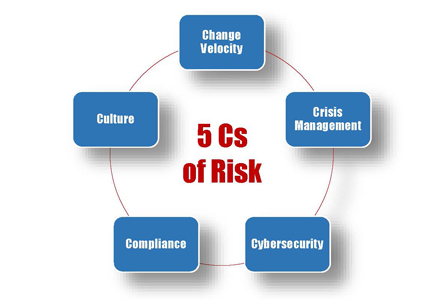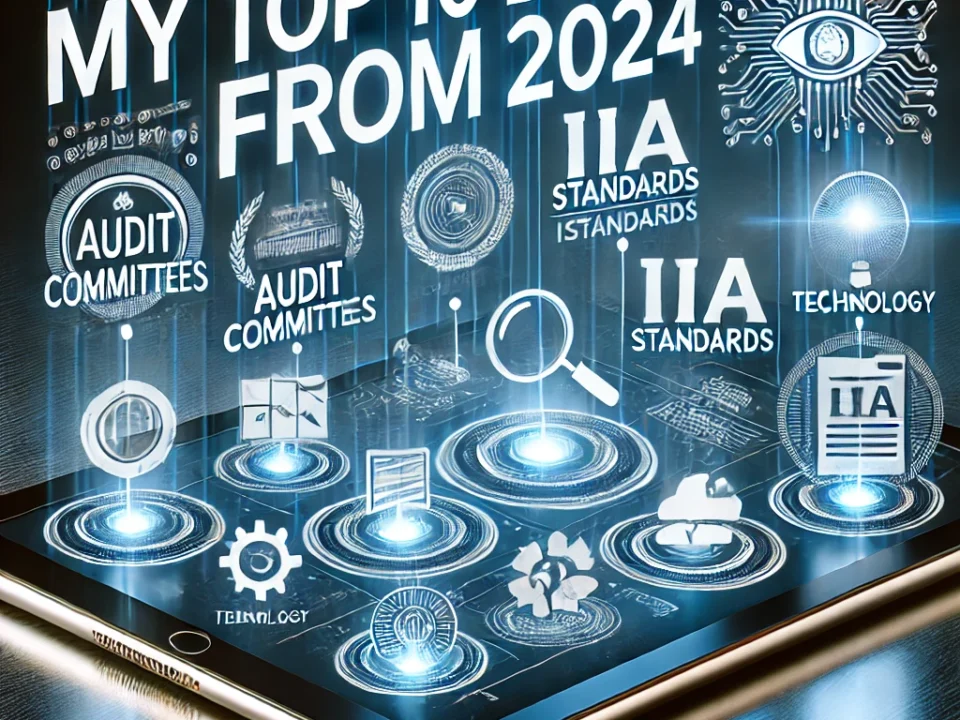
The 5 Cs That Should Be Keeping Boards (and Auditors) Awake at Night
May 26, 2019
Why Tone Is So Important for Internal Auditors
June 10, 2019As we wrap up International Internal Audit Awareness Month, my plan is to flip the coin for June. Just as our profession focused outward over the past month to put on display the talent and value we bring to our organizations, I believe that June should be a month for introspection — what I will unofficially call “Internal Audit Self-awareness Month.” My blog posts this month will revisit previous posts from this series that will help us look inward.
This theme is just as vital as any effort to build awareness about our profession. We must take a realistic and hard look at what we do, how we do it, and how we are viewed by those outside of the internal audit function. As a profession, we sometimes succumb to the echo chamber that sounds our perennial complaint: Internal audit is maligned and misunderstood or isn’t valued as it should be. These conditions are often true, but we must be willing to examine how our actions, attitudes, and practice contribute to them.
What follows is a blog post first published in 2013 that still rings true today. Internal auditors can be their own worst enemies by making interactions with those we audit uncomfortable and confrontational. While we have made great strides in improving our soft skills, it never hurts to be reminded of the importance and value of positive, collaborative interactions.
Auditor: n) from the Anglo-French auditour — listener.
Are you a good listener? Funny how “auditor,” a word that started out as something so desirable, has come to evoke fear and dread among some — like “dentist.”
We are victims of the stereotypes we perpetuate. Mention the word audit and, for many people, their anxiety level will rise. For some, the closest association emotionally would be that of getting a traffic ticket. Think about it. How different would it make you feel if the police officer who pulled you over, instead of just jumping in with bad news, complimented you on your driving and positioned himself as there to help you? Okay, maybe that analogy is a stretch.
Our professional standards say we have to be objective, but that doesn’t mean we can’t be human. There’s already a tendency for people to see internal auditors as cold and impersonal. I suggest that it is incumbent upon us to change this stereotype by 1) acknowledging that it exists, and 2) actively working to change it by honing our people skills.
The point is that successful internal audit engagements/interviews often can begin by simply breaking the ice. A few minutes invested in getting to know those we are auditing or interviewing as people instead of “auditees” (gosh, I hate that term), can pay dividends throughout the process, and especially when it comes to getting buy-in on implementation of audit recommendations.
Despite the stereotypes, internal auditors are human first. It’s only in trying so hard to be objective that we may accidentally flip our personality switches to off, and I believe we do so to our own detriment. One of the hallmarks of good internal auditors is their professional skepticism. However, as I have noted before, there is a fine line between skepticism and suspicion. Those internal auditors who wear their suspicion on their sleeves are the ones who give the profession a bad name. I think it is possible to be collegial and objective at the same time — to “trust but verify,” as the old expression goes.
It may help to recognize that those we audit face exactly the same issues and challenges we do. They are under the same time pressures and the same resource constraints. The only difference is that we are fortunate enough not to be the ones being audited. And, as I often have pointed out, we should be very glad that is the case, because I am not so sure that everything we do as internal auditors is as efficient and effective as possible.
What I’m really talking about here is empathy. Submitting to an audit is an exercise in vulnerability. A little basic human understanding can go a long way toward changing the way people think of internal auditors. Remember, our goal here is to improve the organization. That usually works best when we all work together.
So, the next time you craft a letter or memo announcing an upcoming audit, put yourself in the shoes of the recipient. What do they think when they hear you are coming? Are they filled with dread and anxiety, or do they look forward to validation of their accomplishments and constructive advice you will offer at the conclusion of the audit. We should strive ceaselessly for the latter.
I welcome your thoughts on this timeless topic.




I welcome your comments via LinkedIn or Twitter (@rfchambers).